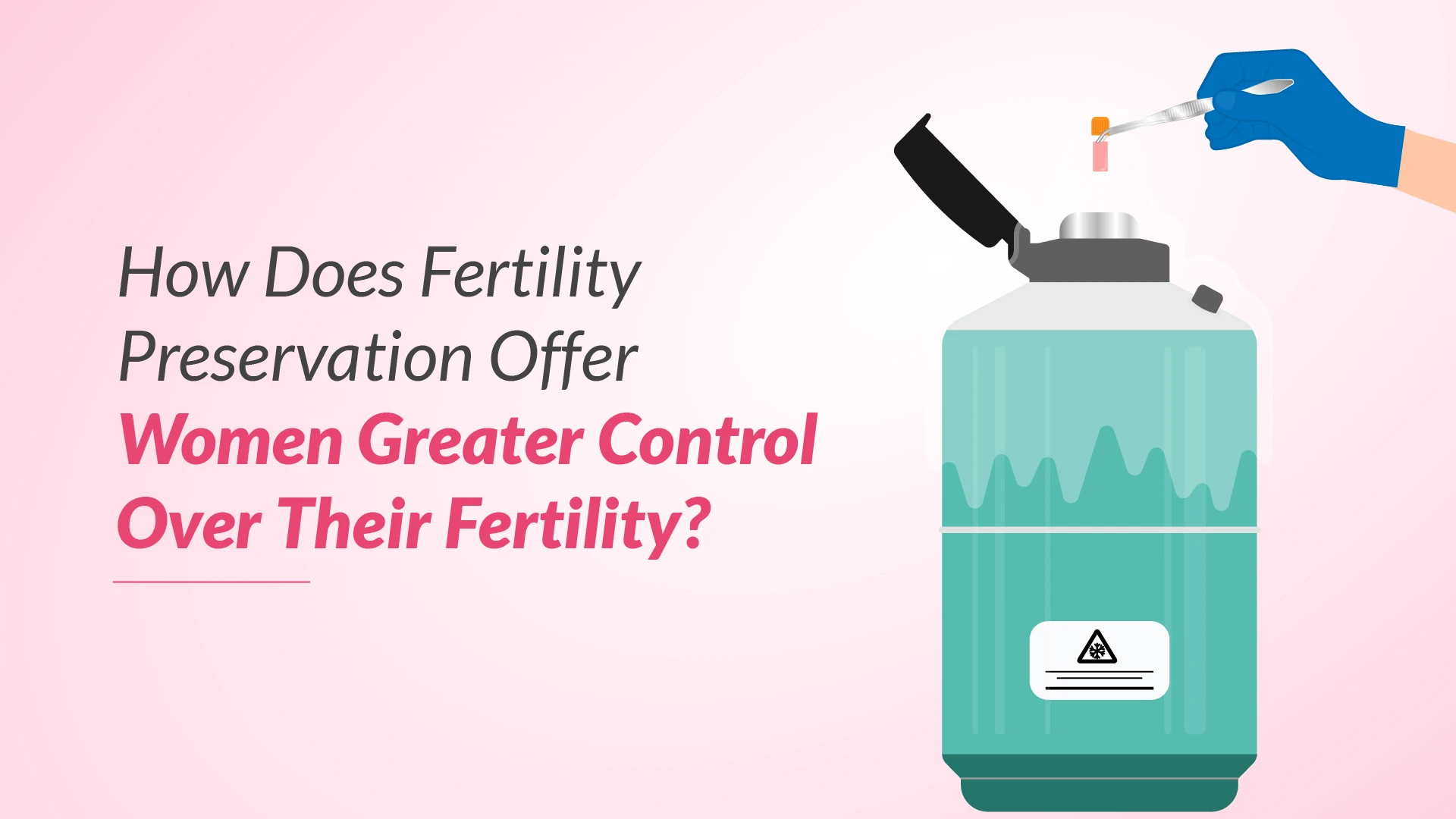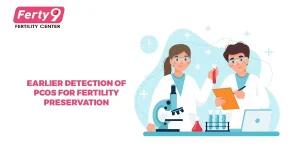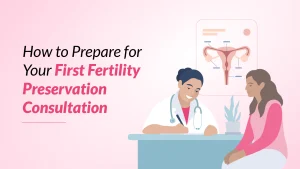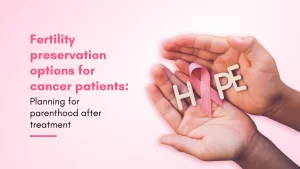In today’s fast-paced world, women are increasingly seeking ways to balance their personal and professional aspirations while maintaining control over their reproductive choices. Fertility preservation has emerged as a powerful solution, empowering women to take charge of their fertility journey and make decisions about the time to start a family. This article delves into the concept of fertility preservation, its significance, and how it offers women greater autonomy over their reproductive lives.
What is Fertility Preservation?
Fertility preservation refers to various medical procedures and techniques designed to safeguard an individual’s ability to conceive a child in the future. These methods aim to preserve reproductive cells, such as eggs or embryos, for later use when natural conception may be challenging or impossible due to age, medical conditions, or other circumstances.
Importance of Fertility Preservation
The importance of fertility preservation cannot be overstated, as it addresses a fundamental human desire for parenthood while providing women with the freedom to pursue their aspirations without compromising their reproductive potential. It offers a solution for those facing fertility challenges due to medical treatments, such as chemotherapy or radiation therapy, or for those who wish to delay childbirth for personal or professional reasons.
Suggested Read: Fertility Preservation Options and Importance
Female Fertility Preservation Methods
There are several fertility preservation methods available for women, including:
- Egg Freezing (Oocyte Cryopreservation): This process involves retrieving a woman’s eggs (oocytes), which are then frozen and stored for future use in assisted reproductive technologies (ART), such as in vitro fertilization (IVF).
- Embryo Freezing: In this method, a woman’s eggs are fertilized with sperm cells to make embryos, which are then frozen and stored for future implantation.
- Ovarian Tissue Freezing: This experimental technique involves removing and freezing a portion of the ovarian tissue containing immature eggs. The tissue can be reimplanted later, potentially restoring fertility.
- Ovarian Transposition: This surgical procedure repositions the ovaries away from the radiation field during cancer treatment to protect them from potential damage.
Suggested Read: Fertility Preservation And Egg Freezing Techniques
How Fertility Preservation Empowers Women
Control Over Reproductive Timing
One of the primary benefits of fertility preservation is the ability to delay childbearing without compromising future fertility. This allows women to focus on their education, career, or personal goals without feeling pressured by the biological clock. By preserving their eggs or embryos, women can choose the optimal time to start a family, aligning their reproductive plans with their life circumstances.
Career and Personal Life Balance
Fertility preservation allows women to balance their professional aspirations and their desire for parenthood. It enables them to pursue demanding careers or educational opportunities without sacrificing their fertility potential. This newfound flexibility can alleviate the stress and pressure of trying to conceive within a limited timeframe.
Medical and Health Considerations
For women diagnosed with certain medical conditions or undergoing treatments that may impact their fertility, fertility preservation provides a viable option to protect their reproductive potential. This includes individuals facing cancer treatments, autoimmune disorders, or other conditions that could compromise their fertility.
Enhanced Reproductive Autonomy
Fertility preservation empowers women with greater control over their reproductive choices. It allows them to make informed decisions about their fertility journey, free from societal pressures or external factors. This autonomy promotes self-determination and fosters a sense of empowerment, enabling women to take charge of their reproductive lives.
Emotional and Psychological Benefits
The ability to preserve fertility can provide significant emotional and psychological benefits for women. It can alleviate anxiety and stress associated with potential fertility challenges, offering a sense of reassurance and hope for future family-building opportunities. This can positively impact overall well-being and quality of life.
Extended Fertility Window
Advances in fertility preservation techniques have effectively extended the fertility window for women. By freezing their eggs or embryos at a younger age, women can potentially conceive later in life when natural fertility may have declined. This flexibility allows for greater control over the timing of parenthood and can accommodate various life circumstances.
Advancement of Gender Equality
Fertility preservation contributes to the advancement of gender equality by providing women with the means to balance their personal and professional aspirations without sacrificing their reproductive potential. It challenges traditional societal expectations and empowers women to make conscious choices that align with their goals and aspirations.
Support for Diverse Family Planning Choices
Fertility preservation supports diverse family planning choices, including single parenthood, same-sex couples, and non-traditional family structures. By preserving their fertility, women have the option to pursue parenthood through various pathways, including assisted reproductive technologies, surrogacy, or adoption, regardless of their relationship status or sexual orientation.
Fertility Preservation for Females with Cancer
For women diagnosed with cancer, fertility preservation is particularly crucial as certain cancer treatments, such as chemotherapy or radiation therapy, can potentially impact their fertility. By preserving their eggs, embryos, or ovarian tissue before treatment, these women can increase their chances of conceiving after successful cancer treatment and remission.
Suggested Read: Fertility Preservation Options For Cancer Patients
Benefits of Fertility Preservation
The benefits of fertility preservation extend beyond the ability to conceive a child. It offers women:
- Peace of Mind: Knowing that their potential to give birth to a child is preserved can provide a sense of relief and diminish stress, allowing females to focus on other aspects of their lives.
- Improved Quality of Life: Fertility preservation’s emotional and psychological benefits can positively impact overall well-being and quality of life.
- Expanded Family-building Options: Fertility preservation opens up various pathways to parenthood, including assisted reproductive technologies, surrogacy, or adoption, catering to diverse family planning preferences.
- Increased Reproductive Confidence: By preserving their fertility, women can confidently approach their personal and professional goals, knowing that their reproductive options remain open.
Conclusion
Fertility preservation represents a significant advancement in reproductive medicine, offering women greater control and autonomy over their fertility journey. By providing the ability to preserve their eggs, embryos, or ovarian tissue, women can make informed decisions about when to start a family, balance their personal and professional aspirations, and navigate medical challenges without sacrificing their reproductive potential. As society continues to evolve & embrace diverse life paths, fertility preservation empowers women to shape their lives on their own terms, fostering a sense of empowerment and promoting gender equality. Ultimately, this innovative approach to fertility management represents a powerful tool for women to take charge of their reproductive futures.





























